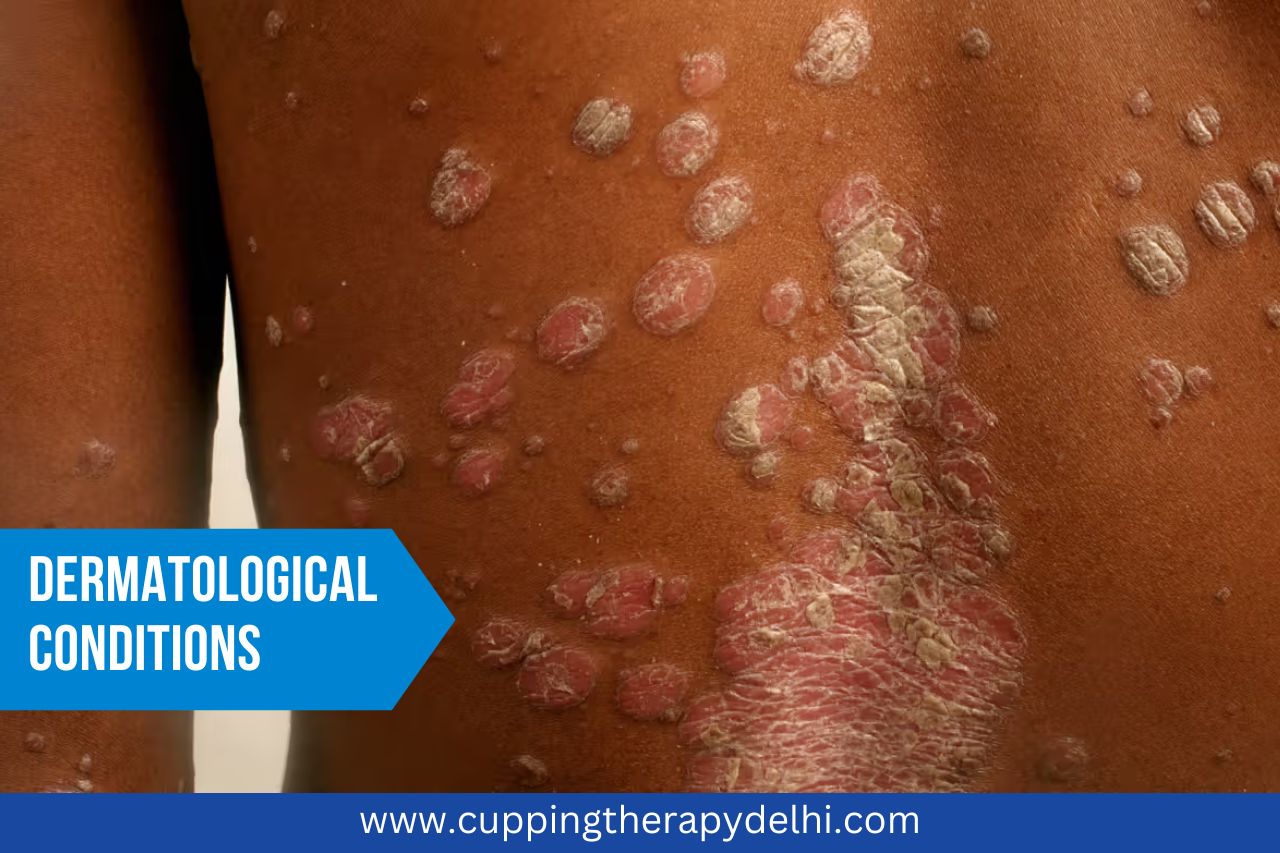Dermatological Conditions
- Home
- Comprehensive Therapy Solutions
- Dermatological Conditions

Dermatological conditions refer to a wide range of disorders affecting the skin, hair, and nails. Common issues include acne, eczema, psoriasis, and skin infections. Symptoms may include rashes, itching, redness, and lesions. Causes can range from genetic factors and allergies to infections and environmental exposures. Treatment often involves topical or systemic medications, lifestyle changes, and skincare routines to manage symptoms and improve skin health. Early diagnosis and appropriate care are essential for effective management and preventing long-term complications.
Common Dermatological Conditions
- Acne Vulgaris: Acne vulgaris is a common skin condition characterized by pimples, blackheads, and cysts, primarily affecting the face, chest, and back. It occurs when hair follicles become clogged with oil and dead skin cells. Treatment typically involves topical or oral medications, skincare routines, and lifestyle adjustments to manage symptoms.
- Cellulite Reduction: Cellulite reduction focuses on minimizing the appearance of dimpled skin, often found on the thighs and buttocks. Treatments include topical creams, massage therapies, laser therapy, and lifestyle changes such as improved diet and exercise. The goal is to enhance skin smoothness and reduce the fat deposits that cause cellulite.
- Eczema (Atopic Dermatitis): Eczema (atopic dermatitis) is a chronic skin condition causing red, itchy, and inflamed patches. It often results from a combination of genetic and environmental factors. Management includes moisturizing the skin, avoiding triggers, and using topical corticosteroids or other anti-inflammatory medications to reduce symptoms and flare-ups.
- Psoriasis: Psoriasis is a chronic autoimmune disorder that accelerates skin cell growth, leading to thick, scaly patches on the skin, often on the scalp, elbows, and knees. Symptoms include redness, itching, and inflammation. Treatment options include topical treatments, phototherapy, and systemic medications to manage symptoms and reduce flare-ups.
- Dermatitis: Dermatitis is inflammation of the skin causing redness, itching, and swelling. Common types include contact dermatitis, triggered by irritants or allergens, and seborrheic dermatitis, characterized by flaky, oily patches. Treatment involves avoiding triggers, using emollients, and applying topical medications to alleviate symptoms and reduce inflammation.

